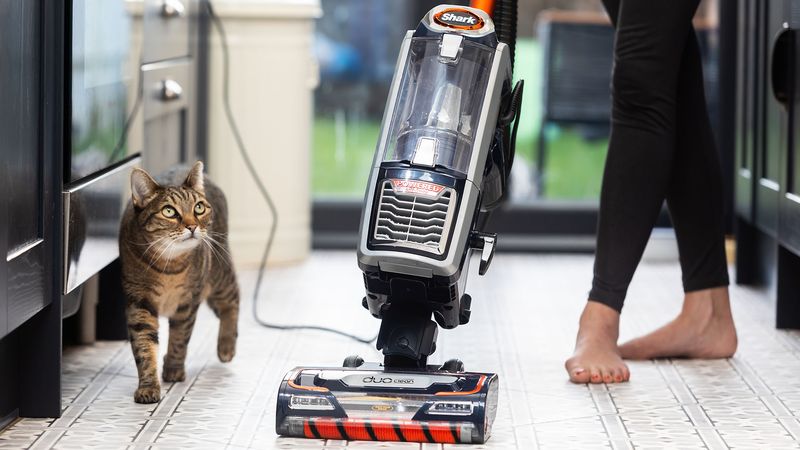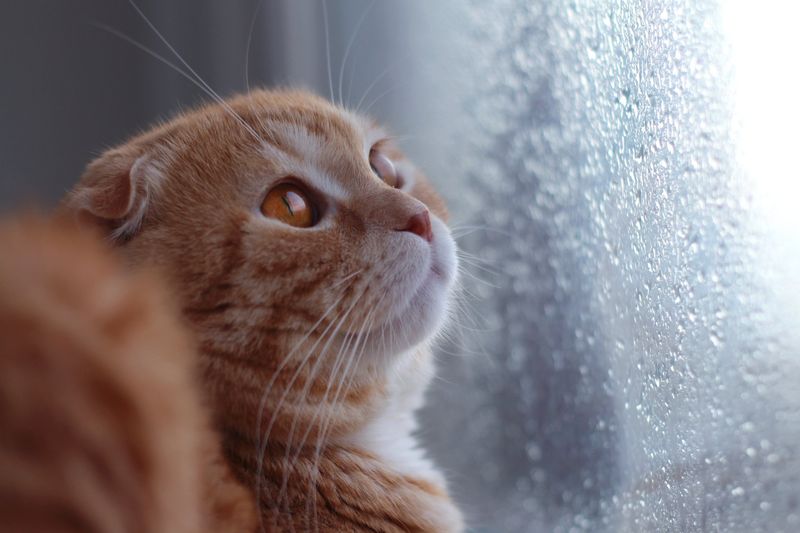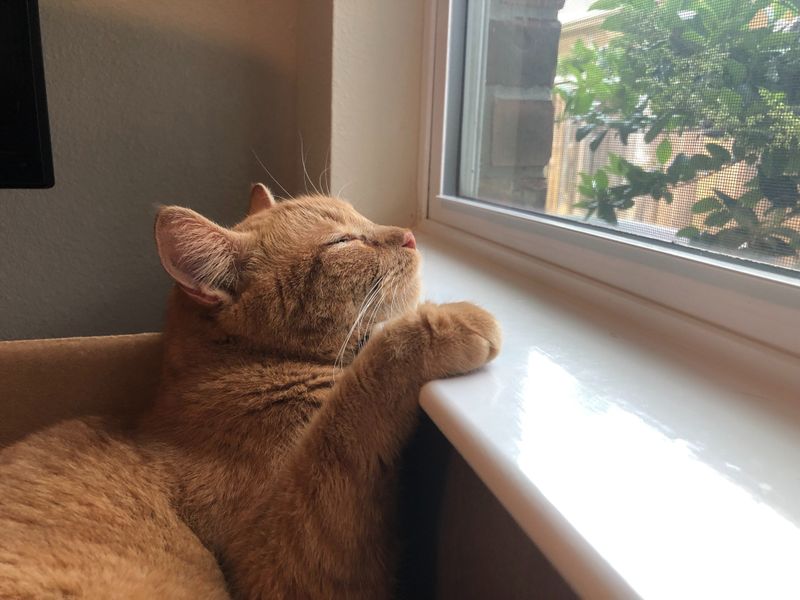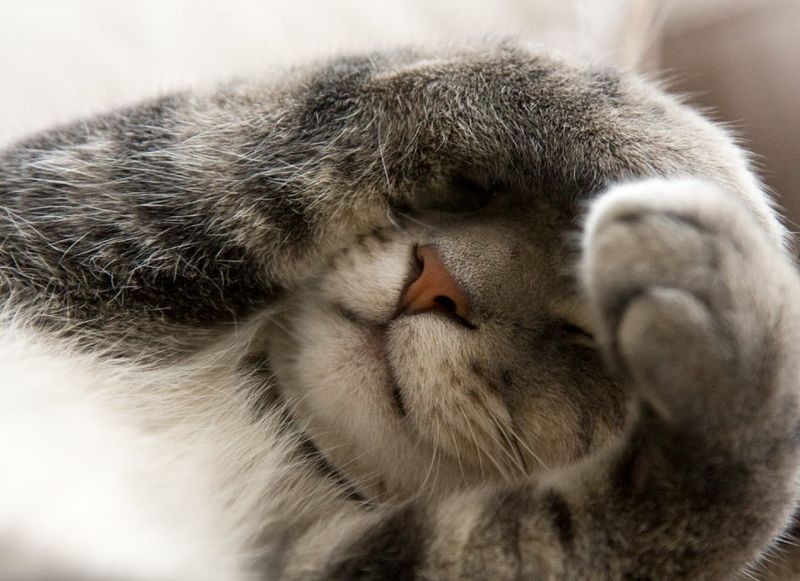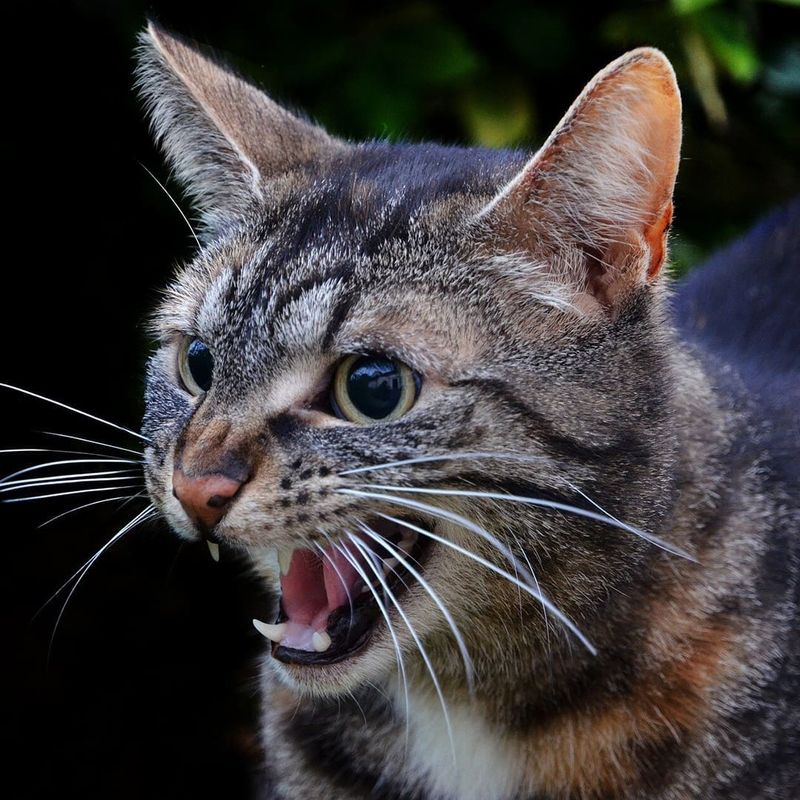12 Noises Cats Absolutely Can’t Stand

Cats, with their acute sense of hearing, often find themselves startled or annoyed by certain sounds. Unlike humans, who might ignore or even enjoy the same noises, these furry creatures have their own unique auditory preferences.
Let’s explore the sounds that send shivers down a cat’s spine, ensuring you keep the peace in your feline-friendly home.
1. Vacuum Cleaners
Few things send cats skedaddling under the nearest couch faster than the roar of a vacuum cleaner. These machines, though essential for a tidy home, emit a noise that seems to vibrate through a cat’s entire being. It’s not just the volume, but also the unpredictable movement that turns this household chore into a feline horror show.
Think of it as a monster that gobbles up dust and debris with an unending appetite. The unpredictability of a vacuum’s path adds to the drama, making it a theatrical performance cats would rather skip. If you’ve ever wondered why your cat eyes the vacuum with such disdain, it’s the combination of noise and movement.
To ease their nerves, consider placing them in a quiet room when cleaning. Alternatively, some cats find solace in hiding spots, so ensuring they have a safe retreat can help mitigate their vacuum phobia.
2. Thunderstorms
When Mother Nature puts on her thunderous show, many cats find themselves enveloped in a cloak of anxiety. Thunderstorms bring a cacophony of loud booms and crashing sounds that make it difficult for these sensitive creatures to find peace.
For some cats, the static electricity in the air is enough to make their fur stand on end. Paired with the unpredictability of thunderclaps, it’s a recipe for feline fear. The darkening sky and sudden flashes of lightning add to the drama, making thunderstorms an all-senses assault.
Creating a calming environment can help reduce their stress. Consider soft music or a comforting blanket to provide a sense of security. For particularly anxious cats, a cozy hiding place away from windows might be the best sanctuary during a storm.
3. Fireworks
Fireworks might be a human favorite, lighting up the night sky with vibrant colors, but for cats, they’re more fright than delight. The sudden explosions and crackles mimic the sounds of danger, triggering their fight-or-flight response.
Cats perceive these booming sounds as threats, much like thunder. The lack of warning and the sheer volume make fireworks a terrifying experience. Even the most laid-back feline can find themselves scurrying for cover under a bed or in a closet.
If you know fireworks are on the agenda, preparing a quiet, comfortable space for your cat can make a world of difference. Ensuring windows are closed and providing background noise, like a fan or soft music, can help drown out the frightful bangs.
4. Loud Music
We all love to jam out from time to time, but cats prefer their playlists set to low volume. Loud music, particularly with heavy bass or high-pitched instruments, can be overwhelming for their sensitive ears.
Unlike humans, who might rock out to the beat, cats find the pulsating rhythms and vibrations unsettling. The constant barrage of noise can be confusing, causing them to retreat to quieter corners. The close proximity to speakers amplifies their discomfort.
Turning down the volume or using headphones can keep your feline friend calm. If a party’s on the horizon, providing a quiet retreat far from the speakers ensures your cat remains unjazzed by the festivities.
5. Construction Noise
Brrr! The sound of construction can send shivers down a cat’s spine. Jackhammers, drills, and other heavy machinery create a symphony that’s more cacophony for our feline friends.
Cats, with their keen sense of hearing, find the persistent noise and vibrations unsettling. The unpredictability of construction work means that peace is shattered without warning, leaving cats anxious and jumpy.
During construction, it’s best to keep your cat indoors. Creating a safe haven with blankets or a perch away from windows can help them feel secure. Soundproofing measures, like closing windows and drawing curtains, can also reduce the auditory assault.
6. Sirens
The wailing of sirens might signal help on the way, but for cats, it’s the soundtrack of unease. Sirens, with their piercing and high-pitched crescendos, are a common trigger for feline anxiety.
These sounds cut through the air, reaching decibels that are uncomfortable for cats. The unpredictability and rapidly changing pitch of sirens can make it difficult for cats to acclimate, leaving them disoriented.
To help your cat cope, consider turning on the radio or television to provide a consistent noise. If sirens are frequent in your area, creating a comforting space with familiar scents and soft bedding can offer them a respite from the urban soundtrack.
7. Alarms
Alarms are designed to get attention, but for cats, they’re more startling than helpful. The sudden, sharp noise of an alarm can trigger a fight-or-flight response, leaving cats feeling threatened.
Whether it’s a smoke detector or a burglar alarm, the unexpected nature of these sounds makes them particularly distressing. The sharpness and volume can send even the bravest cat scurrying for cover.
Ensuring alarms are in good working order can minimize false alarms. Introducing your cat to these sounds at a low volume might help desensitize them over time. However, having a safe, quiet space for them during testing can also help keep their nerves in check.
8. Hissing Sounds
Hiss! The sound that mimics a cat’s own warning signal is naturally unsettling. Whether it’s a hissing radiator or an air compressor, these noises can send cats into defensive mode.
The sound of hissing is a universal symbol of danger in the animal kingdom. For cats, it’s a cue to be on high alert, as it often signals a threat or confrontation. Even non-threatening sources of hissing sounds are enough to trigger this instinctual response.
To reduce their stress, consider minimizing exposure to these noises. If a hissing sound is unavoidable, providing a calm environment with familiar scents can help reassure your cat. Consistent, gentle interaction can also alleviate their anxiety.
9. Baby Cries
The cries of a baby can tug at our heartstrings, but for cats, it’s a perplexing and often alarming sound. Baby cries are high-pitched and can be quite loud, which can be distressing for a cat.
Cats may not understand the source or reason for the crying, making them anxious or curious. The sudden nature of a baby’s wails can catch them off guard, leaving them feeling uneasy.
Creating a peaceful environment away from the noise can help your cat relax. Gradually introducing them to the sounds of a baby can also ease their confusion. Ensuring they have a quiet space to retreat to is essential for maintaining a harmonious household.
10. Clanging Pots and Pans
Who knew that preparing a meal could turn into a feline fright fest? The clatter of pots and pans can be a bit too much for cats, whose sensitive ears aren’t fond of the metallic symphony.
The unexpected nature and sharpness of these noises can startle cats, sending them scampering for cover. Even the anticipation of a pan being placed on a countertop can cause a stir.
For peace-loving pets, maintaining a calm demeanor in the kitchen can help. Try to minimize the clatter by placing items down gently. Ensuring your cat has a quiet nook to relax in while cooking can prevent culinary chaos from turning into a cat-astrophe.
11. Doorbells
Ding-dong! To a cat, the sound of a doorbell can herald the approach of unknown visitors, which can be unsettling. The sudden chime can disrupt their peace and set off a series of anxious responses.
Cats often associate the doorbell with strangers, leading to a mix of curiosity and caution. The abruptness of a doorbell’s ring can startle them, causing a mad dash for a hiding spot.
To ease their nerves, try desensitizing them to the doorbell by associating it with positive experiences. Offering treats or affection when the doorbell rings can help them associate the sound with something pleasant. A quiet retreat away from the hustle and bustle can also provide them with solace.
12. Lawn Mowers
Vroom! The sound of a lawn mower might mean a pristine yard, but for cats, it’s an experience they’d rather skip. The loud engine and vibrations can be overwhelming, making them want to bolt.
The persistent drone of a lawn mower is a noise that doesn’t sit well with feline ears. The unpredictability of the machine’s path and the sheer volume can make it difficult for cats to find their chill.
If lawn mowing is on the agenda, keeping your cat indoors with windows closed can help shield them from the noise. Providing a cozy spot with toys or treats can distract them until the lawn is trimmed and the world is quiet again.

